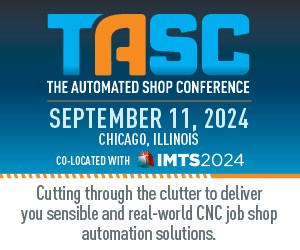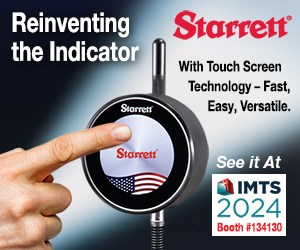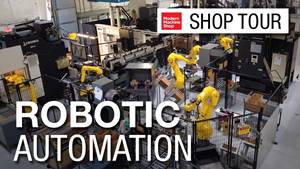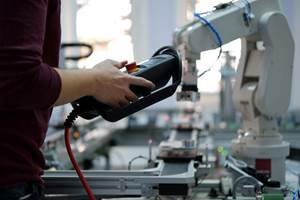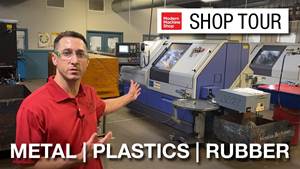Rapid Response Cell Reduces Scheduling Snags
RRC enables machine shops to flex production quickly without risking quality or customer satisfaction.
Since implementing the Rapid Response Cell at Decimet Sales Inc., the company says it has had no trouble completing both short and long-run production jobs on time. Photos courtesy of DSI.
Like most businesses, machine shops run into all types of challenges: maintaining quality products, keeping prices competitive, meeting common shipment schedules, keeping up to date with technical knowledge and more. For a shop that offers rapid prototyping, like Decimet Sales Inc. (DSI), one common challenge is managing production inefficiencies.
Rapid prototyping is a fast-machining or fabricating process that employs CAD experts and high-tech machining to build a preliminary model of a physical part in a faster-than-normal timeframe. To achieve the quick turnaround needed for rapid prototyping, long-run manufacturing projects may need to be stopped, which can cause a cascade of issues. Setup time for prototype work and costs, as well as scheduling problems, may increase. Stress levels also increase because machine operators must pause their long-run productivity, retool the machines and prepare them for prototype production. Once that’s finished, operators must retool the machines again to finish the long-run projects. It is a laborious and stressful place to be. Quality and delivery times may be affected. Furthermore, other client projects on the line may not be finished on time or on budget. There’s a risk of these factors negatively affecting customer satisfaction, sales and margins.
When we noticed scheduling problems increasing at the shop, we realized that we needed a way to run each type of job smoothly at the same time while staying competitive in both types of production. We had situations in which we were unable to get definite start and end dates because of the regular interruptions from prototyping, reworking and short-run jobs. Those conditions started generating uncontrollable delivery dates. It was very difficult to please our clients in the way we are accustomed to.
Our owners, managers, engineers and personnel came together as a company to share opinions on how to productively fix the problems without causing more down the road. There were great ideas from all areas. Ultimately, we agreed that a Rapid Response Cell (RRC) was the best fit to what we wanted to accomplish.
The RRC was designed to be an independent work cell with dedicated machinery and operators specializing in prototyping work and short-run production. This way, long-run production can continue uninterrupted. Introducing the RRC also allowed us to eliminate the extra time and costs necessary to retool a machine for the short-run work.
An RRC was laid out in two areas of our shops — one in the machining shop and one in the fabrication shop. Specific production runs, such as those due within one week or less, are now routed to a RRC using a distinctive designation in the job number. Worker hours are valued at the same as in other work centers, giving clients one more reason to take advantage of the RRC. If no RRC work orders are open, the cell operates for regular production. The RRC can also be used for experimental activities, one-off projects, testing different productivity approaches or for employee testing.
The machining RRC employs a Haas high speed milling machine, a Mazak twin turret, twin spindle lathe, small stand grinders, a drill press, and an inspection table. All work great for prototype projects in the machining department.
The metal fabrication RRC uses a Miller TIG welder. With 400 AMP AC/DC, frequency adjustments, pulse, wave form, wireless foot pedal and water-cooled torch, the welding machine can manage all fab prototype work that comes into the cell. The fab RRC also employs a 60-ton AccuPress Press Brake, a PEM machine and a 3,000-Watt Mazak Optiplex Champion Fiber laser cutting machine.
The RRC employs two full-time operators that manage the cells continually, and more can be called on when necessary. Both RRCs are positioned beside the shipping department, which helps to expedite transport. With this design, dedicated equipment and specialized labor, our RRCs are fully equipped to complete and ship any quick-turnaround work.
Since the setup of the Rapid Response Cell, DSI is realizing growth and success. We have gotten rid of the distractions and interruptions in long-running projects. Customers are now extremely satisfied since they are obtaining their prototype projects faster and awarding extra projects to DSI.
“Tension levels have decreased remarkably,” says Troy Brake, our operation manager at DSI. “Everything is operating more smoothly because of the high RRC visibility.” When workers notice the RRC prefix in the project number, they route it to the RRC knowing that they can go on with their regular, long-run production jobs without forfeiting time and quality. “We probably could have implemented the RRC six months earlier,” Brake adds. “We could have seen faster growth and a boost to our bottom line.”
Related Content
The First American-Made Watch in a Half Century
In the latest episode of our View From My Shop series, MMS Editor-in-Chief Brent Donaldson visited the JN Shapiro Watches headquarters and production facility where Founder Joshua Shapiro—a history teacher turned watchmaker—realized his dream of "making a watch from scratch and everything in it."
Read MoreMetalQuest - Robotic Automation of a Machine Shop
Robots have helped MetalQuest stay competitive and deal with the skills gap. See how they have integrated high-level automation into all aspects of their shop.
Read MoreOvercoming Barriers to Machine Shop Automation
Industrial automation using robots has improved productivity for operations large and small — so why do some manufacturers shy away from it?
Read MoreInside of JRLON Working With Metal, Plastic and Rubber
Jrlon, Inc. is recognized as a dependable source and leading supplier of plastic and specialty metal products. They are one of the premier PTFE processors in the United States. Jrlon's expertise also covers a wide range of other performance plastic materials and alloy steels for custom molding, machining, gear manufacturing, technical industrial coatings, welding, and sheet metal fabrication. Driven by innovative designers and engineers, Jrlon manufactures unique products vital to a wide variety of industries.
Read MoreRead Next
3 Mistakes That Cause CNC Programs to Fail
Despite enhancements to manufacturing technology, there are still issues today that can cause programs to fail. These failures can cause lost time, scrapped parts, damaged machines and even injured operators.
Read MoreObscure CNC Features That Can Help (or Hurt) You
You cannot begin to take advantage of an available feature if you do not know it exists. Conversely, you will not know how to avoid CNC features that may be detrimental to your process.
Read MoreEncountering Surface Finishes in the Everyday World
Surface measurement is becoming increasingly important to ensure proper performance of a manufactured product. Advanced surface measurement tools are not only beneficial in the manufacturing industry but also have unconventional applications.
Read More



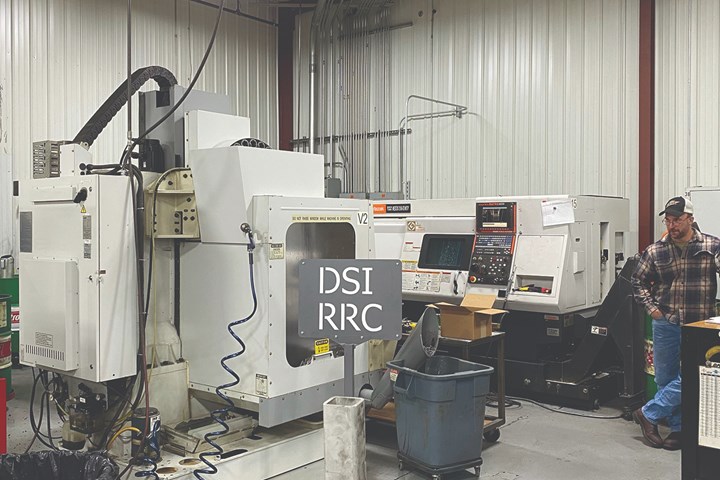



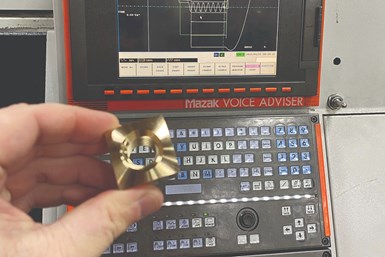
.jpg;maxWidth=300;quality=90)


